UNITED NATIONS SUSTAINABLE DEVELOPMENT GOALS (UN SDGS)
As a responsible business, you understand the need to play your part in tackling global challenges. Sustainable ways of working must take into account the enormous cost of waste, pollution, and carbon emissions. Disposable consumerism is a thing of the past.
Yet, just one-third of organisations believe their industry is moving fast enough to deliver on priority SDGs. The untapped opportunity to do better business is clear.
Whether you’re a multinational or an SME, the EFQM Model can help put the SDGs to work in your organisation. And help your organisation support the SDGs.
Many organisations claim to put ‘purpose’ at the heart of their planning. When it comes to developing an Environmental, Social and Governance (ESG) strategy, one of the best ways to shape that long term plan is to focus on the UN SDGs.
The EFQM Sustainable Development Goal Lens will shine a spotlight on the strategies you need to adopt or improve.
At its most basic this EFQM Lens is a free self-help guide to describe where and how you can do better. But as you dig deeper, the EFQM Sustainable Development Goal lens can become your entire SDG roadmap for improvement.
We believe that all organisations should define their purpose and measure their actions in relation to their impact on the planet. Here are the SDGs explained:
- What are the 17 Sustainable Development Goals?
- What is the UN’s Agenda 2030?
- What are the three main goals of sustainable development?
- How can supporting the SDGs fit with our ESG strategy?
- COP26 and the SDGs
- How can my business support the SDGs?
What are the 17 Sustainable Development Goals?

The seventeen SDGs (sometimes called Global Goals) contain promises that carry the power to transform the world. They will make it a better place to live, work and enjoy.
Within the 17 headline goals are 169 associated targets. Each of the UN’s 193 member states signed up to this roadmap towards ending inequality and protecting the planet.
Here we set out the full sustainable development goals list, and some of the targets and indicators used to measure success:

1. NO POVERTY:
One-in-ten people still live in extreme poverty, surviving on less than $1.25-a-day. Daily, thousands die for want of the most basic human needs: food and clean water. Uniting to end poverty in all its forms and allowing everyone to prosper will benefit all. By building resilience and self-sufficiency everywhere, we will unlock vast human potential.

2. ZERO HUNGER:
Lack of food remains the world’s number one killer. The goal is to end hunger and malnutrition so all people have enough healthy, nutritious food for life. By promoting new forms of sustainable agriculture and ensuring fair distribution, we make the best use of the world’s resources. Together, we can make hunger history.

3. GOOD HEALTH AND WELL-BEING:
With sufficient money and resources, human ingenuity has proven a match for many deadly diseases. Together we can ensure health and wellbeing for all ages. Goals include ending preventable infant deaths; stopping the AIDs and malaria pandemics; and halving the number of deaths in road accidents.

4. QUALITY EDUCATION:
High quality, inclusive education is key to helping everyone fulfil their potential. This will be discrimination-free and available regardless of who you are, or where and how you live. The goal is to offer 12 years of publicly-funded schooling, supported by lifelong learning opportunities for all.
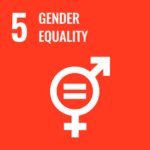
5. GENDER EQUALITY:
Today women and girls are denied many of the rights and opportunities enjoyed by the opposite sex. The imbalance undermines our social fabric. As well as stopping gender bias, goals include ending harmful practices such as child or forced marriage and female genital mutilation.

6. CLEAN WATER AND SANITATION:
One-in-three worldwide have no access to safe drinking water, with three billion people lacking even basic hand washing facilities. This causes unnecessary disease and death. By ensuring access to clean water and sanitation for all, cutting pollution and protecting water ecosystems, we can stop unnecessary suffering and make a better planet.
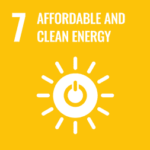
7. AFFORDABLE AND CLEAN ENERGY:
We can no longer rely on fossil fuels to power economic growth. Everyone should have access to clean, affordable, modern and reliable sources of energy. Goals include doubling the rate of improvement in energy efficiency and substantially increasing the share of renewable energy in the global mix.

8. DECENT WORK AND ECONOMIC GROWTH:
Continued economic growth can be a positive force for good. Failure to deliver full and productive employment for all is a waste of human resources. The UN promises to end forced and child labour, modern slavery and human trafficking. It will increase aid for trade and promote a safe, secure working environment for all.

9. INDUSTRY, INNOVATION AND INFRASTRUCTURE:
To meet the challenges of an increasingly digital world, industries and infrastructures need to be upgraded. Innovation and investment will build prosperity and global stability. Goals include enhancing research and development of new technologies while improving access to affordable financial services for small businesses in developing countries.
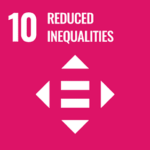
10. REDUCED INEQUALITY:
The aim is to reduce wealth inequality within and among countries. The UN promises to give developing countries a voice in global decision making. The least well-off everywhere should see their income growing faster than the national average. And all countries should enable orderly, safe and responsible migration.

11. SUSTAINABLE CITIES AND COMMUNITIES:
In an increasingly urban world, we need to be sure our cities are clean, safe and affordable places to live. We all need access to green spaces and inspiring culture. The UN has set goals for everything from air quality to waste management. It pledges financial and technical support for that work in developing countries.

12. RESPONSIBLE CONSUMPTION AND PRODUCTION:
We must learn to make the best use of the world’s limited natural resources. The UN set out eco-friendly promises to protect the planet. The world needs sustainable forms of consumption and production. Goals include halving per capita food waste, developing sustainable tourism and living in harmony with nature.

13. CLIMATE ACTION:
Climate change is a real and present threat to the way we live, work and interact with each other. The world must unite to take urgent action to combat the crisis. We must build defences and early-warning systems against climate-related natural disasters. The UN calls for $100 billion-a-year to help that work in developing countries.

14. LIFE BELOW WATER:
Oceans and seas cover 70% of our planet. Humans rely on these marine habitats for food, energy and water. Protecting them and the life they maintain is a key priority. Goals include creating conservation areas from at least 10% of all coastal waters, ending subsidies that enable overfishing and significantly reducing plastic pollution.
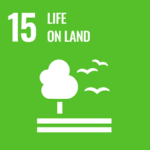
15. LIFE ON LAND:
The world must take responsibility for restoring and protecting land-based ecosystems: end deforestation, protect biodiversity and stop the creation of new deserts. Goals include ending poaching and trafficking of threatened species; reducing the impact of invasive, alien species; and achieving a land degradation-neutral world.

16. PEACE, JUSTICE AND STRONG INSTITUTIONS:
Building a better, fairer world means delivering equal access to justice and political decision-making for all. The work of institutions should be transparent and accountable. Goals include ending promoting and enforcing non-discriminatory laws; cutting bribery and corruption; and tackling organised crime.

17. PARTNERSHIPS TO ACHIEVE THE GOAL:
We can only achieve the SDGs by working with each other. That means government, business and people pulling together. The UN has set targets around finance, technology, trade and capacity building to help achieve its ambitious plan.
How does your industry measure up against the 17 SDGs?
What is the UN’s Agenda 2030?
The 17 SDGs are at the heart of the United Nations’ Agenda 2030: a 15-year action plan for “people, planet and prosperity”. It promises that no one will be left behind.
What are the three main goals of sustainable development?
The three main goals of sustainable development are to improve the economic, environmental and social situation for everyone. Each of these are linked.
Economic activity satisfies people’s wants and needs; this needs to be done with respect for our fragile environment, all while striving for a fair and just society for everyone.
How can supporting the SDGs fit with our ESG strategy?
ESG stands for Environmental, Social and Governance. Investors are increasingly evaluating organisations’ environmental, social, and governance performance, and investing more in organisations which can demonstrate a commitment to long-term improvement.
One of the clearest ways to demonstrate an organisation’s commitment to long-term sustainability is to set targets to support the UN’s Global Goals (SDGs).
The EFQM SDG lens can help shine a spotlight on the areas you need to adopt or improve.
EFQM has also produced a Circular Economy Lens to help organisations focus on improving sustainability as part of their ESG Strategy.
COP26 and the SDGs
COP26 unites experts and world leaders to tackle the global climate crisis. The high-level Glasgow summit, that took place from 30 October to 12 November, has set new targets for climate action and limits on carbon emissions.
Protecting the planet is key to delivering against many SDGs. As such, the COP26 agenda sits at the intersection of climate change and sustainable development. Global cooperation between business and politics underpins the success of both.
How can my business support the SDGs?
The EFQM UN SDG Lens recognises that every organisation has its own ecosystem and context. This makes your relationship with the UN SDGs unique.
Our Lens helps you do a forensic examination of the SDGs impact on your organisation. And, in turn, it will show how your organisation can impact the success of the SDGs.
Looking for a live demo?
Why you and your organisation should use the AssessBase as your key management tool or the KnowledgeBase as your key resources hub? Contact us to arrange a live demo or if you have any questions.
GLOBAL HEAD OF DIGITAL SERVICES
Vinciane Beauduin






